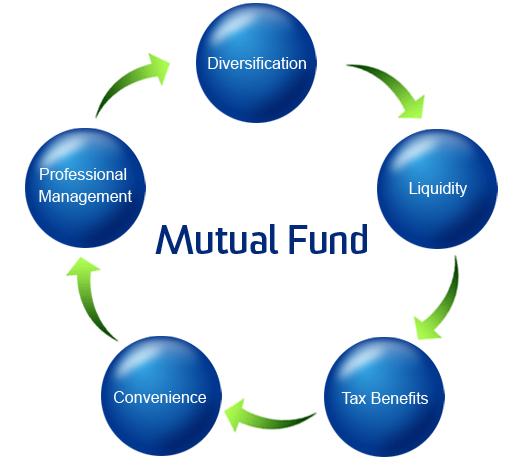
Who can invest
- Resident Indian Individuals / HUF
- Indian Companies / Partnership Firms
- Trusts/Charitable Institutions/PF
- Banks/FIs/NBFCs
- Insurance Company
- NRI/FII
Characteristics of a Mutual Fund
- Investors own the mutual fund.
- Professional managers manage the affairs for a fee.
- The funds are invested in a portfolio of marketable
- securities, reflecting the investment objective.
- Value of the portfolio and investors’ holdings, alters with
- change in market value of investments
Pros and Cons of Mutual Funds
- Portfolio diversification
- Professional management
- Reduction in risk
- Reduction in transaction cost
- Liquidity
- Convenience and flexibility
- No control over costs
- No tailor-made portfolios
- Issues relating to management of a portfolio of mutual funds
Types of Funds classified by nature of Investments
EQUITY FUNDS
- Pre-dominantly invest in equity markets
- Diversified portfolio of equity shares
- Select set based on some criterion
- Diversified equity funds(ELSS as a special case), Capitalisation based funds, Index funds, Sectoral funds, Value Funds, Equity Income or Dividend Yield Funds, Aggressive Growth Funds, Growth Funds etc
DEBT FUNDS
- Predominantly invest in the debt markets
- Diversified debt funds
- Select set based on some criterion Income funds or diversified debt funds, Gilt funds,Liquid and money market funds,Serial plans or fixed term plans, High Yield Debt Funds etc
BALANCED FUNDS
- Growth & Income Funds( strike a balance between capital appreciation & income for the investor)
- Investment in more than one asset class
- Debt and equity in comparable proportions
- Pre-dominantly debt with some exposure to equity
- Pre-dominantly equity with some exposure to debt
